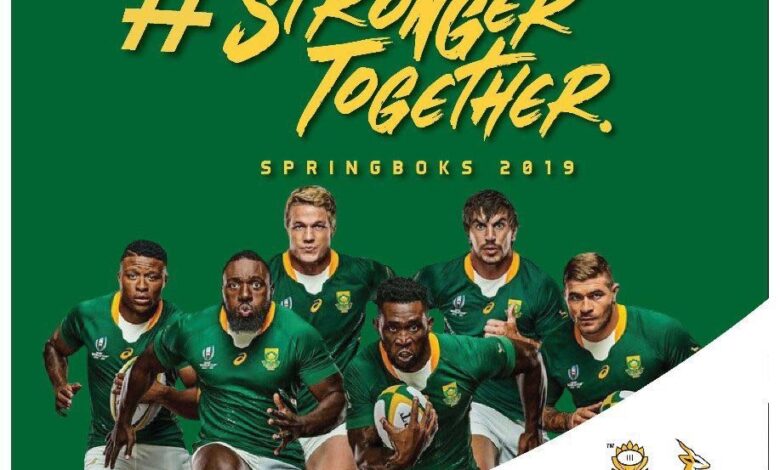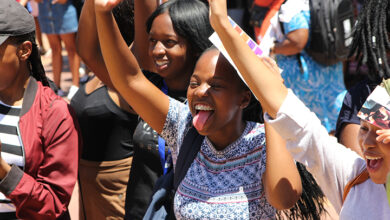The Role of Schools in Shaping Bokke Stars: List of Bokke players and their school of rugby

Since Bokke’s world cup win agains New Zealand (All Blacks), in South Africa, rugby is deeply ingrained in the national identity, and schools play a pivotal role in nurturing and developing future rugby stars. Parents are looking for schools that will prepare a good future for their kids and here is the list.
The Impact of Schools on Rugby Excellence
Schools provide a fertile ground for rugby development by offering structured training, competitive opportunities, and a supportive environment. Here’s how schools contribute to players’ success:
- Early Exposure and Skill Development: Schools introduce rugby at an early age, allowing players to develop fundamental skills and techniques from a young age. This early exposure fosters a love for the game and lays a solid foundation for future success.
- Structured Training and Coaching: Schools provide regular training sessions led by qualified coaches who impart essential rugby knowledge and skills. Coaches focus on developing physical fitness, tactical awareness, and game strategies, preparing players for competitive matches.
- Competitive Opportunities: Schools participate in various rugby competitions, ranging from local tournaments to national championships. These competitions provide players with a platform to showcase their talents, gain match experience, and develop mental resilience under pressure.
- Supportive Environment: Schools foster a supportive environment that encourages teamwork, sportsmanship, and personal growth. Players learn to work together, respect their opponents, and overcome challenges, both on and off the field.
- Identification and Nurturing Talent: Schools play a crucial role in identifying and nurturing talented players. Coaches and teachers recognise potential stars and provide them with additional guidance and opportunities to excel.
Below is an exhaustive list of South African rugby team players, primary schools they went to including province, and high schools they went to including province and the year they matriculated, as of November 1, 2023:
| Player | Primary School (Province) | High School (Province) | Year Matriculated |
|---|---|---|---|
| Siya Kolisi | Grey Primary School (Eastern Cape) | Grey High School (Eastern Cape) | 2012 |
| Eben Etzebeth | Tygerberg Hoërskool (Western Cape) | Tygerberg Hoërskool (Western Cape) | 2010 |
| Faf de Klerk | Hoërskool Garsfontein (Gauteng) | Hoërskool Garsfontein (Gauteng) | 2010 |
| Handré Pollard | HTS Vereeniging (Gauteng) | HTS Vereeniging (Gauteng) | 2012 |
| Bongi Mbonambi | Michaelhouse (KwaZulu-Natal) | Michaelhouse (KwaZulu-Natal) | 2010 |
| Duane Vermeulen | Nelspruit High School (Mpumalanga) | Nelspruit High School (Mpumalanga) | 2008 |
| Malcolm Marx | Hoërskool Outeniqua (Western Cape) | Hoërskool Outeniqua (Western Cape) | 2010 |
| Cheslin Kolbe | Kraaifontein Secondary School (Western Cape) | Paarl Boys’ High School (Western Cape) | 2013 |
| Willie le Roux | Paul Roos Gymnasium (Western Cape) | Paul Roos Gymnasium (Western Cape) | 2011 |
| Makazole Mapimpi | Dale College (Eastern Cape) | Grey High School (Eastern Cape) | 2012 |
| Damian de Allende | Goodwood High School (Western Cape) | Paul Roos Gymnasium (Western Cape) | 2011 |
| Lukhanyo Am | Selborne College (Eastern Cape) | Selborne College (Eastern Cape) | 2013 |
| Pieter-Steph du Toit | Paarl Boys’ High School (Western Cape) | Paarl Boys’ High School (Western Cape) | 2013 |
| Kwagga Smith | Grey College (Free State) | Grey College (Free State) | 2013 |
| Franco Mostert | Grey College (Free State) | Grey College (Free State) | 2012 |
| Trevor Nyakane | Glenwood High School (KwaZulu-Natal) | Glenwood High School (KwaZulu-Natal) | 2012 |
| Ox Nché | Hoërskool Framesby (Eastern Cape) | Grey High School (Eastern Cape) | 2012 |
| Steven Kitshoff | Paul Roos Gymnasium (Western Cape) | Paul Roos Gymnasium (Western Cape) | 2011 |
| Herschel Jantjies | Hoërskool Stellenberg (Western Cape) | Hoërskool Stellenberg (Western Cape) | 2015 |
| Cobus Reinach | Hoërskool Garsfontein (Gauteng) | Hoërskool Garsfontein (Gauteng) | 2010 |
| Willie Engelbrecht | Hoërskool Monument (Gauteng) | Hoërskool Monument (Gauteng) | 2013 |
| Marvin Orie | Tygerberg Hoërskool (Western Cape) | Tygerberg Hoërskool (Western Cape) | 2011 |
| Elton Jantjies | Grey College (Free State) | Grey College (Free State) | 2010 |
| Damian Willemse | Hoër Landbouskool Boland (Western Cape) | Hoër Landbouskool Boland (Western Cape) | 2016 |
| Kurt-Lee Arendse | Hoërskool Boland Landbou (Western Cape) | Hoërskool Boland Landbou (Western Cape) | 2019 |
| Canan Moodie | Boland Landbou (Western Cape) | Boland Landbou (Western Cape) | 2020 |
| Jasper Wiese | Hoërskool Framesby (Eastern Cape) | Hoërskool Framesby (Eastern Cape) | 2017 |
| Johan Goosen | Hoërskool Monument (Gauteng) | Hoërskool Monument (Gauteng) | 2010 |
| Warrick Gelant | Outeniqua High School (Western Cape) | Outeniqua High School (Western Cape) | 20?? |
A Guide to a Successful Talent and a School of Rugby
To become a breeding ground for rugby excellence, schools should implement the following strategies:
- Invest in Qualified Coaches: Employ experienced and qualified coaches who possess a deep understanding of the game and can effectively train and mentor young players.
- Promote Early Exposure: Introduce rugby to students from an early age through fun and engaging activities, fostering a love for the sport and encouraging participation.
- Provide Structured Training Programs: Develop structured training programs that incorporate physical conditioning, skill development, tactical training, and match preparation.
- Encourage Competitive Opportunities: Actively participate in local, regional, and national rugby competitions to provide players with competitive exposure and match experience.
- Foster a Supportive Environment: Cultivate a supportive and inclusive school culture that emphasizes teamwork, sportsmanship, and personal development.
- Identify and Nurture Talent: Establish talent identification programs to recognize and nurture promising players, providing them with additional support and guidance.
- Collaboration with Local Clubs: Collaborate with local rugby clubs to provide players with additional training opportunities, match exposure, and access to experienced coaches.
- Promote Rugby Culture: Organize rugby-themed events, invite guest speakers, and celebrate rugby achievements to promote the sport within the school community.
- Invest in Facilities and Equipment: Ensure adequate access to well-maintained rugby fields, training facilities, and appropriate equipment to support training and development.
- Promote Rugby as a Pathway to Higher Education and Professional Careers: Highlight the opportunities that rugby can provide, such as scholarships, professional contracts, and international representation.
By implementing these strategies and fostering a culture of rugby excellence, schools can play a pivotal role in shaping the future of South African rugby, producing talented players who will represent the country with pride on the international stage.



